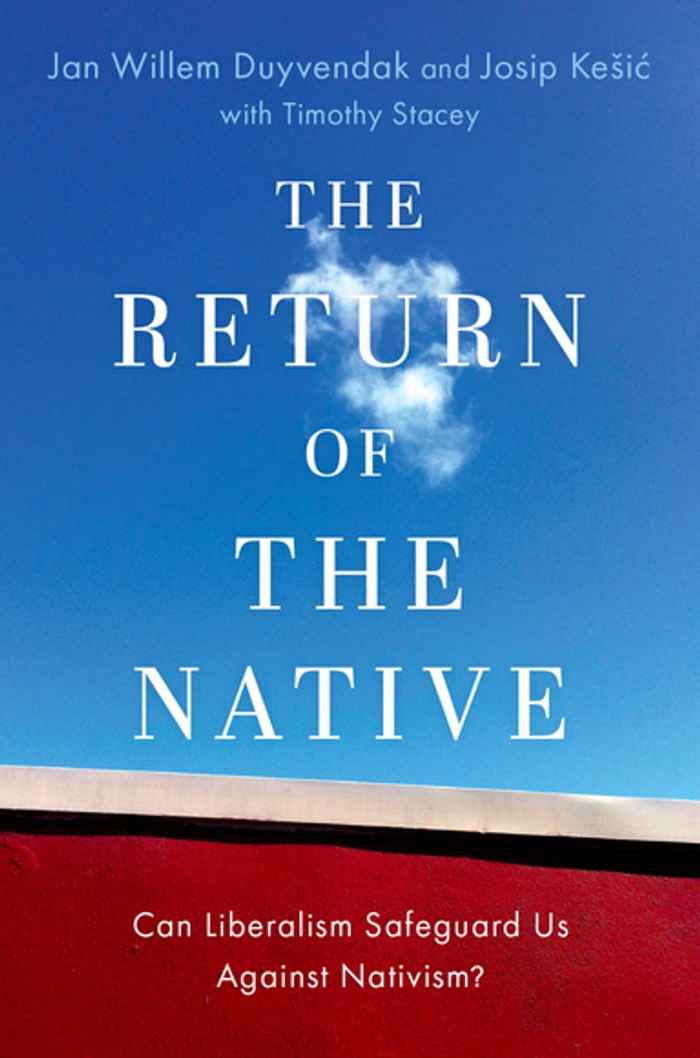The return of the 'native'
Can liberalism safeguard us against nativism?
14 February 2023

In The Return of the Native. Can Liberalism Safeguard Us Against Nativism? the authors see the return of nativism in the Netherlands exemplified in the idea that Dutch people and their culture are being threatened by an internal and ‘foreign’ minority. ‘When Muslims in the Netherlands are attacked for their views and customs, we often regard this as a form of Islamophobia’, Duyvendak explains. ‘But if we take a closer look, we see that it isn’t just about Islam or Muslims, but also about who belongs in the Netherlands and the claim that Islam can never become Dutch.’
This distinction between true Dutch people (‘natives’) and those who never seem to be able to truly become Dutch is something Duyvendak also sees in the Zwarte Piet debate: ‘White Dutch people suggest that Surinamese Dutch people should keep quiet about this, because it’s our tradition. As if Surinamese Dutch people are not actually Dutch.’
In their book, the authors argue that the core of all these forms of discrimination and exclusion is in fact nativism.
Progressives also dismiss political opponents as ‘un-Dutch’
The authors argue that leftists and progressives are sometimes guilty of nativism as well. ‘In our book, we analyse how even green left leader Jesse Klaver dismisses political opponents as “un-Dutch”, for instance, when he states that right wing party leader Geert Wilders – or the radical right in general – is not tolerant like a “true” Dutchman.’ Duyvendak describes it as tragically ironic that by embracing this nativist narrative to take the wind out of the radical right’s sails, people inadvertently help to legitimise the very thing they are trying to combat: nativism.
‘Nativism has become so strong that it’s almost impossible not to use it in Dutch politics.’

Due to the return of nativism, the political debate is now constantly about who is or is not a true Dutch citizen, Duyvendak says. ‘Nativism has become so strong that it’s almost impossible not to use it in Dutch politics. And that’s why we are having endless discussions about what constitutes authentic Dutchness, about our national history, a national museum and the national canon.’
Nativism is a global phenomenon
Nativism isn’t just a Dutch phenomenon, but a global one. In the book, the authors focus on developments in the Netherlands, France and the United States. ‘The Netherlands has always been very preoccupied with cultural identity, partly due to pillarisation and the prominent role of religion’, Duyvendak explains. ‘It has long been thought, or hoped, that nativism would have less of a chance in France and the United States. Reasons include the fact that a country like the US is a nation of immigrants, and it is easier to obtain citizenship in both countries.’
But the authors describe how a massive wave of nativism has also emerged in France and the US in recent times. ‘Especially under Donald Trump, whose narrative is steeped in nativism against Latinos, Muslims and the liberal elite. And under Marine Le Pen, who never fails to emphasise that Muslims and black French citizens are not really French.’
Aggressive nativism
Duyvendak notes that his current students are already accustomed to the nativist narrative. ‘For them, it’s completely normal to endlessly talk about Dutch identity.’ But he also sees how a more aggressive face of nativism is increasingly showing itself. ‘The ugly thing about nativism is that, according to this ideology, people who are not Dutch, French or American should actually disappear because they are not compatible with the national identity. What should happen to them, then? Proponents of replacement theories are very explicit in this regard. They claim to feel so threatened by ‘replacement’ from the outside that immigrants are no longer welcome and non-white people should leave the country.’
A hopeful perspective
The authors conclude their book by sharing a hopeful perspective in which fellow citizens are not dismissed as alien, but included in shared practices as equals. ‘Nativism is not a necessary outcome of recent history; as long as we act with conviction, we can influence how we (want to) see and shape the world.’
Book details
Jan Willem Duyvendak and Josip Kesic with Timothy Stacey, 2022, The Return of the Native. Can Liberalism Safeguard Us Against Nativism? Available in paperback from Oxford University Press.